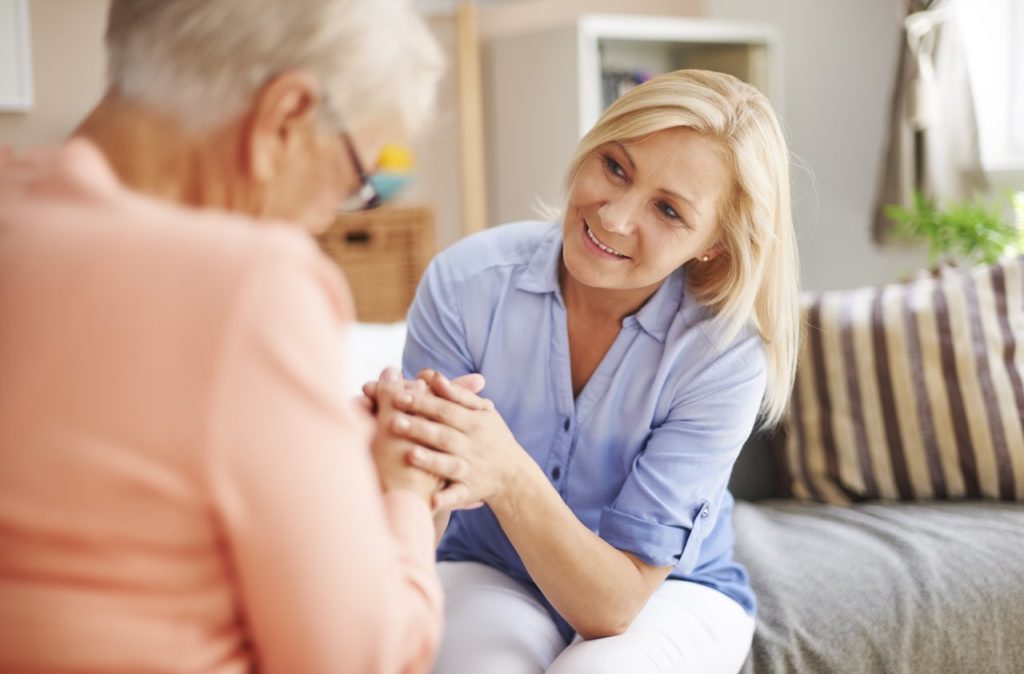
- By Anne Sansevero
As Aging Life Care Managers® one of our important roles is helping clients and their families look ahead to assist them with emergency preparedness. We do this with advanced directive planning and health education by ensuring their vaccinations are up to date. However, there are times when certain situations pose new and unprecedented challenges and require extraordinary measures. Hurricane Sandy comes to mind. I vividly remember when we were delivering hot meals and medications to clients who were sheltering in place in buildings that lost power and coordinating to ensure continuity of their home care services in a challenging situation. We got through it and it made us stronger and more knowledgeable and our clients were deeply appreciative.
The COVID-19 (corona) virus now presents us with a new public health challenge and we need to be informed and prepared to assist our clients in their emergency preparedness in a compassionate, competent, and controlled manner. We also need to keep the communication channels wide open.
Scientists are still gathering data and updating their recommendations on a daily basis. Both the Centers for Disease Control and Prevention (CDC) and World Health Organization (WHO) have the most up to date information available on this novel virus.
- CDC: https://www.cdc.gov/coronavirus/2019-ncov/index.html
- WHO: https://www.who.int/emergencies/diseases/novel-coronavirus-2019
The current recommendations from the Centers Of Disease Control (CDC) is to practice every day preventative measures. Individuals and families should follow the everyday preventive measures listed below – this means we need to educate our clients, families and their caregivers on the following them and most importantly follow them ourselves!
- Voluntary Home Isolation if sick with viral symptoms: Stay home when you are sick with viral or respiratory disease symptoms. At the present time, these symptoms are more likely due to influenza or other respiratory viruses than to COVID-19-related virus. Stay in touch with your primary care provider on what testing may be needed. Do not engage with others in a work or social setting until you are symptom and fever free for 48 hours and have been medically cleared
- Respiratory Etiquette: Cover coughs and sneezes with a tissue, then throw it in the trash can.
- Hand Hygiene: Wash hands often with soap and water for at least 20 seconds; especially after going to the bathroom; before eating; and after blowing your nose, coughing, or sneezing.
- Avoid Touching your eyes, nose, mouth and ears
- If soap and water are not readily available, use an alcohol-based hand sanitizer with 60%-95% alcohol.
- Environmental Health Action: Routinely clean frequently touched surfaces and objects with disinfected wipes especially mobile phones and computers
I would add that as Aging Life Care Professionals® we should look ahead to ensuring that our clients have at least a month’s supply of medications in the home and that there is a supply of fever-reducing over the counter medications, gloves, and disinfecting wipes in the home
Routine use of these measures by everyone will increase community resilience and readiness for responding to an outbreak. As of 2/26/20, the CDC is also recommending to be prepared for potential community outbreaks or hot spots in the US within the next few weeks. Here are their recommendations if a community hotspot is identified–
- Personal Protective Measures. During an outbreak in your community, CDC recommends the everyday preventive measures listed above—especially staying home when sick—and taking these additional measures:
- Keeping away from others who are sick.
- Limiting face-to-face contact with others as much as possible
- Consulting with your healthcare provider if you or your household members are at high risk for COVID-19 complications
- Wearing a facemask if advised to do so by your healthcare provider or by a public health official
- Staying home when a household member is sick with respiratory disease symptoms, if instructed to do so by public health officials or a health care provider (Voluntary Home Quarantine)
- Community Measures. If COVID-19 disease is occurring in your community, state and local public health authorities may decide to implement:
- Temporary closures or dismissals of childcare facilities and schools
- Other social distancing measures that increase the physical space between people, including:
- Workplace social distancing measures, such as replacing in-person meetings with teleworking
- Modifying, postponing, or canceling mass gatherings.
According to the CDC, decisions about the implementation of community measures will be made by local and state officials, in consultation with federal officials as appropriate, and based on the scope of the outbreak and the severity of illness. Implementation will require extensive community engagement and ongoing and transparent public health communications.
ALCA’s Aging Life Care Professionals are dedicated, smart, and responsive and can support clients as they need before and during illness outbreaks. This Covid-19 outbreak can be concerning, but knowledge is power and implementing best practices helps create the best outcomes for all.
Anne C. Sansevero, RN, MA, GNP, CCM – Anne Sansevero is the founder and CEO of HealthSense LLC, an Aging Life Care™ management consulting practice. She is a master’s prepared geriatric nurse practitioner, and a seasoned nursing professional with over 30 years of experience in the field. Anne has a sub-specialty in neurological disorders and is well versed in all aspects of geriatric nursing. She has particular expertise with communication disorders relating to stroke and dementia and has developed a number of innovative nursing assessment tools and standards to improve the nursing care for frail elders. Anne is a member of the Aging Life Care Association® (ALCA) and Fellow of the Aging Life Care Leadership Academy. She is currently serving on the board of the ALCA, and is Vice President of the New York Chapter. In addition, Anne is a member of the American Academy of Nurse Practitioners and the Nurse Practitioners of New York. Anne is a registered nurse, certified case manager, and a master’s prepared geriatric nurse practitioner.